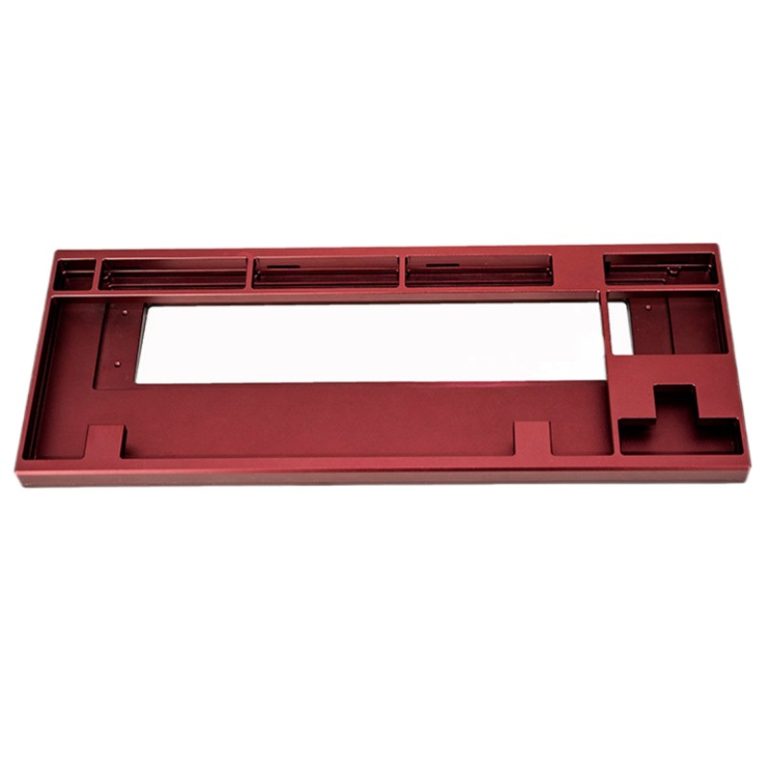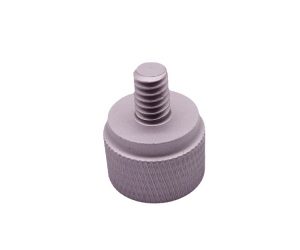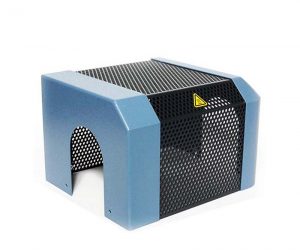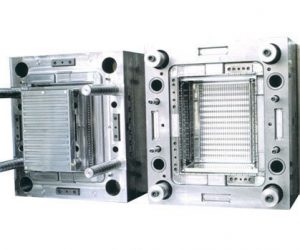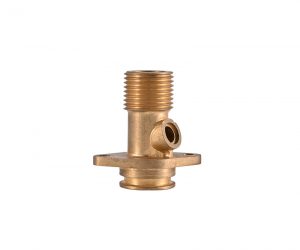Discover the Key Factors to Consider When Selecting the Right Precision Machining Parts Supplier for Your Advanced Manufacturing Projects. Selecting the right precision machining parts supplier is a critical step in ensuring the success of your advanced manufacturing projects. By carefully evaluating a supplier’s reputation, technological capabilities, quality assurance practices, and commitment to cost-effectiveness, you can confidently choose a partner who will deliver high-quality parts that meet your exact specifications.
As manufacturing continues to evolve, so too will the technologies and processes that drive precision machining. By selecting a supplier who embraces innovation, prioritizes quality, and aligns with sustainable practices, you position your business for long-term success and industry leadership.
I. Introduction
A. Importance of Precision in Manufacturing
In advanced manufacturing, precision is more than a requirement—it's a fundamental element that determines the success of a project. From the tiniest components in medical devices to aerospace engines, even the slightest deviation in measurement can lead to significant performance issues, reduced durability, and safety risks. As industries strive for higher performance and innovation, precision machining has become a critical element in achieving this, ensuring parts meet strict tolerances and function reliably in demanding environments.
B. Overview of Machining Parts Suppliers
Choosing the right precision machining parts supplier is essential to your project’s success. With a variety of suppliers available—from established industry giants to smaller specialized firms—the process of selecting a reliable partner can be overwhelming. Each supplier brings its own strengths to the table, whether in terms of technologies, material expertise, or delivery capabilities. Finding the perfect match requires understanding the key aspects that define a top-tier supplier and aligning those with your own specific needs and goals.
II. Evaluating Your Precision Machining Needs
A. Defining Precision Requirements
Before searching for a supplier, it’s crucial to clearly define your project’s precision requirements. These include dimensions, tolerances, surface finishes, and performance parameters. By specifying these needs in detail, you ensure that potential suppliers can meet your expectations. Furthermore, articulating your quality standards upfront will streamline communication and prevent misunderstandings down the line.
B. Considerations for Part Geometry and Tolerances
The complexity of part geometry and the level of tolerances required will determine the type of machinery and techniques your supplier must employ. For example, parts with intricate geometries or micron-level tolerances may require advanced CNC machining, laser cutting, or Electrical Discharge Machining (EDM). Discussing these elements with suppliers allows you to assess whether they have the expertise and equipment to handle your project’s challenges.
III. Choosing the Right Supplier
A. Reputation and Industry Experience
A supplier’s reputation is a key indicator of their reliability and capability. Experienced suppliers with a proven track record in your industry or a similar one will have the necessary knowledge to deliver parts that meet the required specifications. Check for client testimonials, industry certifications, and success stories that speak to the supplier’s ability to handle complex projects and deliver on time.
B. Capabilities and Technologies
Evaluate the supplier’s technological capabilities, including their CNC machining equipment, the precision of their machining techniques, and their ability to work with advanced technologies such as 5-axis machining or automated systems. Suppliers who invest in the latest machinery and cutting-edge processes are better equipped to deliver high-precision, high-quality parts consistently.
C. Quality Assurance and Certifications
High-quality machining isn’t just about having the right tools—it’s also about rigorous quality control. Ensure the supplier adheres to recognized quality management systems such as ISO 9001 or AS9100. These certifications demonstrate their commitment to quality, process reliability, and continuous improvement. Additionally, verify the supplier’s inspection processes and whether they use advanced metrology tools to ensure part accuracy and consistency.
IV. Materials and Processes in Precision Machining
A. Commonly Used Precision Materials
The materials chosen for precision machining play a pivotal role in the final part’s performance. Common materials used in precision machining include stainless steel, aluminum alloys, titanium, and engineering plastics. Each material has unique properties that influence the machining process, so choosing a supplier with expertise in working with the specific materials required for your project is critical.
B. Advanced Machining Techniques
Precision machining encompasses a broad spectrum of techniques, from traditional CNC turning and milling to specialized processes such as EDM and laser cutting. If your project requires a specialized process, such as the ability to work with hard-to-machine materials or ultra-fine tolerances, look for suppliers with expertise in these techniques. Suppliers who use multi-axis CNC machines, Swiss-type turning, and advanced tooling are well-equipped to handle complex and high-precision parts.
C. The Role of Post-Processing in Achievement of Precision
Post-processing steps such as deburring, surface finishing, and heat treatment can significantly impact the final precision of machined parts. While the machining process itself lays the foundation, post-processing ensures that parts meet exacting surface finish standards and tolerances. Ensure that the supplier has the capability and experience to provide necessary post-processing services that maintain the quality of your parts.
V. Cost vs. Quality: Making the Right Decision
A. Understanding the Cost Structure
While cost is always a consideration, it should never outweigh the importance of quality in precision machining. Understanding the supplier’s cost structure will help you assess whether their pricing aligns with the value they offer. Ask for detailed breakdowns that include material costs, labor, tooling, and overhead. Be wary of low-cost suppliers who may compromise on quality, as this can lead to expensive rework or failures down the line.
B. Balancing Budget with Precision Requirements
The key to cost-effective precision machining is striking a balance between your budget and the required quality. While higher-end suppliers might have higher initial costs, their ability to consistently meet tolerances and deliver quality parts can result in long-term savings, including fewer defects, reduced scrap, and faster turnaround times. It’s essential to consider the total cost of ownership, not just the upfront price.
VI. Case Studies: Success Stories in Precision Machining
A. Pioneering Projects and Innovative Solutions
Case studies can provide valuable insights into a supplier’s ability to tackle complex, high-stakes projects. Look for examples where suppliers have successfully solved engineering challenges or developed innovative solutions for high-precision components. Whether it’s developing a new machining process or providing on-the-fly problem-solving, such examples demonstrate the supplier’s capabilities and adaptability.
B. Overcoming Challenges and Scaling New Heights
Every project comes with its own unique challenges. Evaluate how potential suppliers have overcome obstacles such as tight deadlines, complex geometries, or demanding materials. Understanding their approach to troubleshooting and overcoming challenges provides a deeper insight into their resilience and problem-solving skills.
VII. The Future of Precision Machining and Suppliers
A. Emerging Technologies and Their Impact
Precision machining is an ever-evolving field, with continuous advancements in technology. From artificial intelligence-driven optimization to the growing integration of additive manufacturing (3D printing), these innovations are transforming how parts are designed, produced, and inspected. A supplier’s willingness to adopt and integrate these technologies is an indicator of their commitment to staying ahead of the curve and meeting future manufacturing needs.
B. Sustainable Practices and Global Standards
With a growing focus on sustainability and environmental responsibility, the precision machining industry is embracing greener practices. Look for suppliers who implement energy-efficient processes, use recyclable materials, and comply with global sustainability standards. A supplier that integrates these practices can help reduce your overall environmental footprint while contributing to the long-term viability of your projects.
FAQs:
Q: What are the key factors to consider when evaluating the capabilities of a precision machining parts supplier?
A: Evaluate the supplier’s industry experience, technical expertise, advanced CNC equipment, certifications (e.g., ISO 9001), and proficiency in working with a wide range of materials and machining techniques.
Q: How can I ensure that a potential supplier has the necessary capabilities to handle my project’s precision requirements?
A: Discuss your specific requirements directly with potential suppliers, including tolerances, part geometry, and required machining techniques. Request samples or case studies to verify their capabilities.
Q: What role do post-processing steps play in achieving the desired level of precision in machined components?
A: Post-processing steps such as surface finishing and heat treatment can refine parts to meet stringent dimensional, material, and surface finish requirements, ensuring the final product performs as intended.
Q: How can I balance cost considerations with the need for precision in my machining parts procurement?
A: Evaluate the total cost of ownership, factoring in quality, production efficiency, and performance. Choose a supplier that offers value beyond the initial price, ensuring consistent precision and reliability.
Q: What emerging technologies are shaping the future of precision machining?
A: Key technologies include advanced metrology tools, artificial intelligence for process optimization, additive manufacturing (3D printing), and sustainable manufacturing practices that reduce environmental impact.
